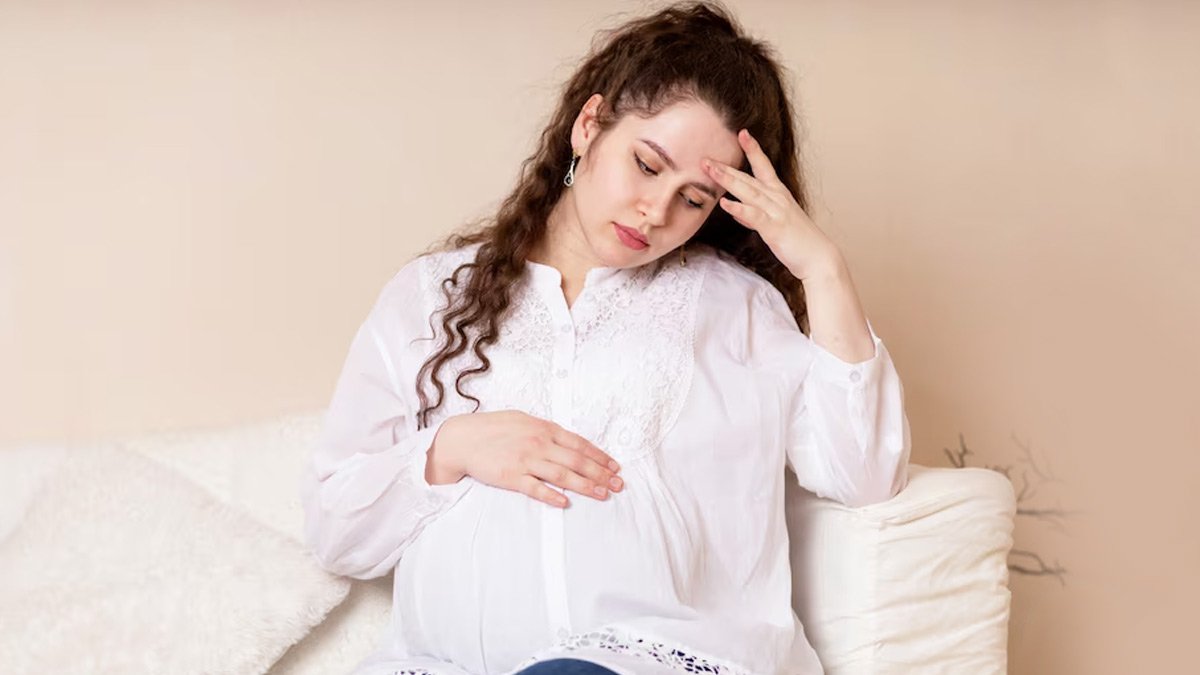
Pregnancy being the most delicate phase, you give all your attention to your physical and mental health. From eating healthy to exercising and from keeping your schedule intact to following doctor’s instructions, you do all to maintain yours and your baby’s health during pregnancy. Maintaining a balance of iron levels in your body is as crucial to prevent anaemia during pregnancy.
Table of Content:-
To understand how pregnant women are prone to anaemia, OnlyMyHealth interacted with Dr Apurva Gupta, Consultant, Obstetrics and Gynaecology at Daffodils by Artemis East Of Kailash, New Delhi.
Anaemia And Pregnancy
Anaemia is a condition where your blood does not have enough red blood cells or haemoglobin to carry oxygen to the body’s tissues. Talking about anaemia in pregnancy, Dr Gupta said, “In pregnancy, anaemia can occur because of increased blood volume and the body's demand for iron. It can cause complications like preterm delivery, low birth weight, and maternal mortality if left untreated.”
Proper prenatal care that involves iron supplementation and dietary adjustments, is needed to manage anaemia during pregnancy and mitigate its adverse effects on both the mother and the developing foetus.

Causes
As per Dr Gupta, the volume of blood in the body increases significantly during pregnancy which can cause dilution of red blood cells and haemoglobin. Pregnancy also increases the body's demand for iron to support the growing foetus and placenta. “Inadequate dietary intake of iron or poor absorption of iron can result in iron deficiency anaemia. Insufficient intake of folate-rich foods or inadequate absorption of folate which is responsible for red blood cell production can contribute to anaemia,” she said.
Furthermore, she said, “Vitamin B12 is necessary for the formation of red blood cells and its deficiency can cause a type of anaemia called megaloblastic anaemia. Additionally, certain chronic conditions, like thalassemia, sickle cell disease, and autoimmune disorders, can predispose pregnant women to develop anaemia.”
Women carrying multiple foetuses are also at a higher risk of developing anaemia due to increased demands on their bodies. Lastly, women whose intake of nutrition is inadequate are also likely to develop anaemia.

Warning Signs
Here are some warning signs of anaemia during pregnancy.
- Fatigue and weakness
- Dizziness
- Shortness of breath
- Pale skin or gums
- Rapid heartbeat
- Cold extremities
- Chest pain
- Headache
- Trouble in concentrating
These symptoms result from a lack of oxygen reaching tissues due to decreased red blood cell or haemoglobin levels.
Also read: Dealing With Anaemia? Here're 8 Natural Ways To Prevent Anaemia And Improve Haemoglobin

Treatment Options
Dr Gupta said, “Treating anaemia during pregnancy involves replenishing iron stores without harming the baby. Healthcare providers generally recommend iron supplementation in the form of ferrous sulphate, ferrous gluconate, or ferrous fumarate, often taken with vitamin C to enhance absorption.”
Dietary adjustments like increasing the consumption of iron-rich foods like lead meats, leafy greens, beans, and fortified cereals are recommended. “In severe cases, intravenous iron therapy may be needed. Regular monitoring of haemoglobin levels ensures that the treatment is effective and ensures safety for both the mother and the developing foetus,” Dr Gupta said.
Conclusion
While concluding, Dr Gupta emphasised on the prevention of anaemia. She said, “Consuming a balanced diet rich in iron, folate, and vitamin B12 through foods like lean meats, poultry, fish, leafy greens, legumes, fortified cereals, and citrus fruits significantly helps. Prenatal vitamins containing iron and folic acid are also recommended.” Furthermore, she said, “Avoiding substances that can inhibit iron absorption, like caffeine and calcium supplements, while consuming foods rich in vitamin C, which enhances iron absorption, can help. Regular prenatal check-ups enable doctors to monitor iron levels and provide necessary supplements or interventions to prevent anaemia and promote maternal and foetal well-being.”
Also watch this video
How we keep this article up to date:
We work with experts and keep a close eye on the latest in health and wellness. Whenever there is a new research or helpful information, we update our articles with accurate and useful advice.
Current Version